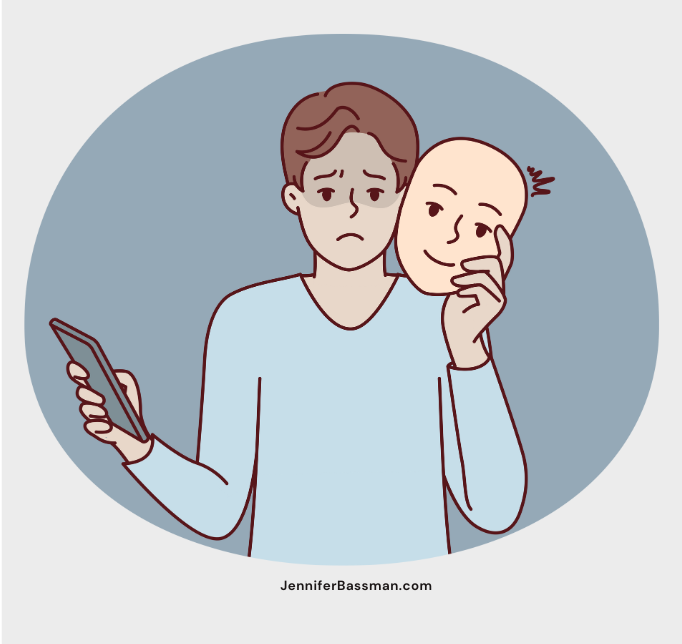It’s inevitable: there is going to be a time when you have to walk away from your business, career, a relationship, or a good or bad deal.
Basically, you’re going to need to walk away from something, at some point.
I have.
Sometimes I regretted doing so, but other times, it was the best decision for me at that moment.
For example, I walked away from a business that I created from scratch and poured my blood, sweat, and (a lot of) tears into for seven years.
The relationship with my partners was toxic, I hated managing employees, and I was severely burned out to the point my physical and mental health were in danger.
Trouble making decisions? Check out my What Do I Do? Workbook on Etsy to help you find the answer.
I fought walking away for at least year because I felt like I was quitting and failing.
What I couldn’t focus on at the time of my exit, was that I had grown a successful (and profitable) business, had “won” the entrepreneurial race, and the business was keeping me from other growth opportunities.
When I found the courage to walk away, I had no idea what I was going to do with myself because I had not prepared an exit strategy like I had been advised to many times before.
Why We Struggle to Take That Necessary Hike
It’s hard to know when to walk away from professional or personal situations.
I know I felt like I could fix my situation, but the reality was: the fact that I needed to fix the things that needed fixing was reason enough to leave.
However, when you are in a situation that you need to walk away from, you aren’t thinking clearly. Stress is impacting your brain and affecting your decision-making. So, like me, you risk making a lot of emotionally based decisions, rather than using your brain strategically.
In a lot of cases, many of us struggle with Sunk Cost Fallacy.
Sunk Cost Fallacy is our tendency to follow through on something that we’ve already invested in heavily (be it time, money, effort, emotional energy, etc.) – even when giving up is clearly the better idea.
No matter how much the drawbacks outweigh the benefits.
We go against evidence – no matter how obvious – that shows it is no longer the best decision to stay.
Here’s a relatable example: You bought a concert ticket a few weeks ago for $150 for one of your favorite bands. Beyond the cost, you’re really excited. All of your friends will be there!
However, on the day of the concert, you are really sick. It’s raining outside and you know the traffic will be worse because of the rain. You risk getting even sicker if you go to the concert.
Even though the drawbacks outweigh the benefits, why the heck are you still likely to go to the concert?
Because you feel like you have already invested in it, whether it be monetarily or the effort you put into the decision and planning. So, that often means we go against evidence that shows it is no longer the best decision to follow through or stay.
How to Know It’s Time
Clients that we can never seem to make happy, employees who are perpetually frustrated and pissed off, or unhealthy personal relationships all need a recognized expiration date.
Here are the criteria I follow to “Know When It’s Time”:
- You can’t be yourself.
- The messages you believe are important to share are not welcomed.
- The outcomes you’re passionate about are not in alignment with their desired outcome.
- The people you’ll be collaborating with don’t reflect core values that are essential to you.
- You’re being micromanaged before you even take the gig or enter an official “relationship.”
- Your experience, know-how and perspective aren’t appreciated or valued.
- Your boundaries are disregarded.
- Lack of communication between all parties.
- Constant negativity from all involved. You feel responsible for and expend most of your energy on boosting morale.
- Bad outweighs the good. Ask yourself what you are really getting out of it.
Over time, what I focused on was the opportunities that I was missing out on because I was expending so much time and energy on a situation that wasn’t working for anyone involved. My F.O.M.O. turned out to be a very powerful motivator…
Exit Strategy
My only regrets about walking away from my business:
- Not having the exit strategy, I had been advised to create when things were good. I made the fatal misjudgment that I couldn’t imagine walking away from this business that had become a part of me.
- Not walking away sooner.
Exit strategies should be created when things are good. As I mentioned earlier, when things are bad, they are usually stressful and stress clouds your judgement and makes it difficult to manage your emotions. So, you may end up saying and doing things that aren’t in your best interest or taint your legacy.
While exit strategies are typically thought of as something for business owners, they are often necessary in many personal situations, too.
Here is what can make for a successful exit strategy:
(Remember, these are general guidelines and every situation is unique.)
- Communicate with your support system: Let them know you are making a big decision, how it may affect you, and ask for their guidance in making it a smoother transition. They can help with how you approach the situation, the wording you use, or even timing.
- Create a plan for what you will do next: When you leave your business, career, or a relationship, what is next for you? Make sure you are financially prepared and have support for the (often unexpected) emotional toll walking away may take.
- Look toward growth opportunities: You will feel better and more encouraged if personal growth is part of your plan. Pick up a new hobby, make time to be with friends, or work with a therapist to help your mindset.
- Timing: Coming up with an exit strategy will take time, as well as, implementing it. Depending on what you are walking away from, make sure that your responsibilities are taken care of. Is it appropriate for you to leave documentation? Do you need to train someone? We don’t always get to say, “I’m done” and immediately walk out the door. Managing the timing will also help you feel like you aren’t leaving someone in the lurch.
- It doesn’t matter what anyone else thinks or how they feel about your decision: It’s your life, your time, and your energy. What others think doesn’t matter. They don’t have to personally deal with the consequences. And, for those who are unsupportive, they have often benefitted from your misery. Unless it’s someone directly involved, you aren’t obligated to share why you have decided to walk.
You will have a lot of unexpected feelings, guilt, and possibly, some doubt about your decision to walk away. That’s totally normal!
Lean on your support system and consider working with a therapist to deal with some of the stronger emotions that are bubbling up. (I did.) Your support system can help you keep moving forward and leaving the past behind you.






